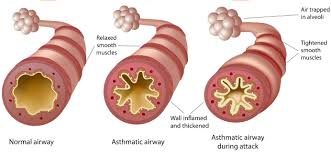Eight hours postoperative following a total knee replacement, which intervention should the nurse implement for the client?
Apply cool compresses to the affected limb every six hours.
Place a soft pillow under the affected knee.
Promote bedrest for 24 hours.
Encourage increased fluid intake.
The Correct Answer is D
Choice A Reason
Applying cool compresses to the affected limb can help reduce swelling and provide pain relief. However, it's important to follow the surgeon's specific postoperative orders, as the application of cold can vary depending on the surgical technique and patient's condition.
Choice B Reason
Placing a soft pillow under the knee is not recommended after total knee replacement surgery. This position can lead to decreased range of motion and contractures. The knee should be kept in a more extended position to promote healing and mobility.
Choice C Reason
Promoting bedrest for an extended period is not typically advised following knee replacement surgery. Early mobilization is important to prevent complications such as deep vein thrombosis and to encourage circulation and healing. The duration of bedrest should be as per the surgeon's protocol.
Choice D Reason
Encouraging increased fluid intake is important after surgery to prevent dehydration, promote kidney function, and ensure adequate blood volume and circulation. Proper hydration is essential for healing and can help with the metabolism of medications used during and after surgery.
Nursing Test Bank
Naxlex Comprehensive Predictor Exams
Related Questions
Correct Answer is ["A","C","D"]
Explanation
Choice A Reason:
Stopping NSAIDs is crucial for clients with PUD because NSAIDs can cause injury to the lining of the stomach or intestine, making it more vulnerable to damage from stomach acid. This can lead to the development or exacerbation of ulcers.
Choice B Reason:
Continuing aspirin may not be advisable for clients with PUD, as aspirin is an NSAID and can contribute to the development of peptic ulcers by inhibiting prostaglandin synthesis, reducing the protective mucosal layer, and increasing susceptibility to injury.
Choice C Reason:
Limiting caffeine is recommended for clients with PUD. Caffeine stimulates gastric acid secretion, which can exacerbate ulcer symptoms and impede the healing process.
Choice D Reason:
Avoiding alcohol is advised for clients with PUD. While there is mixed evidence on alcohol directly causing stomach ulcers, heavy alcohol consumption is considered a risk factor for developing stomach ulcers and can worsen the symptoms of existing ulcers.
Choice E Reason:
Eating large meals is not recommended for clients with PUD. It is better to eat smaller, more frequent meals to avoid overfilling the stomach and increasing gastric pressure, which can exacerbate symptoms.
Correct Answer is B
Explanation
Choice A Reason:
Using accessory muscles while breathing is a sign of respiratory distress and indicates that the client is working harder to breathe. This is not a desired outcome of treatment and suggests that the asthma exacerbation is not under control.
Choice B Reason:
The ability to answer questions in full sentences suggests that the client's airway is not severely obstructed, which is a positive sign of effective asthma treatment. When asthma is well-controlled, individuals should not experience significant shortness of breath that limits their ability to speak.
Choice C Reason:
Diminished breath sounds can be a sign of severe airway obstruction and are not indicative of effective asthma treatment. Ideally, lung auscultation should reveal clear breath sounds without wheezing, indicating good air movement throughout the lungs.
Choice D Reason:
Restlessness and anxiety can be symptoms of hypoxia, a condition where the body or a region of the body is deprived of adequate oxygen supply. This is not a sign of effective asthma treatment and may indicate that the client's asthma is not well-managed.

Whether you are a student looking to ace your exams or a practicing nurse seeking to enhance your expertise , our nursing education contents will empower you with the confidence and competence to make a difference in the lives of patients and become a respected leader in the healthcare field.
Visit Naxlex, invest in your future and unlock endless possibilities with our unparalleled nursing education contents today
Report Wrong Answer on the Current Question
Do you disagree with the answer? If yes, what is your expected answer? Explain.
Kindly be descriptive with the issue you are facing.
